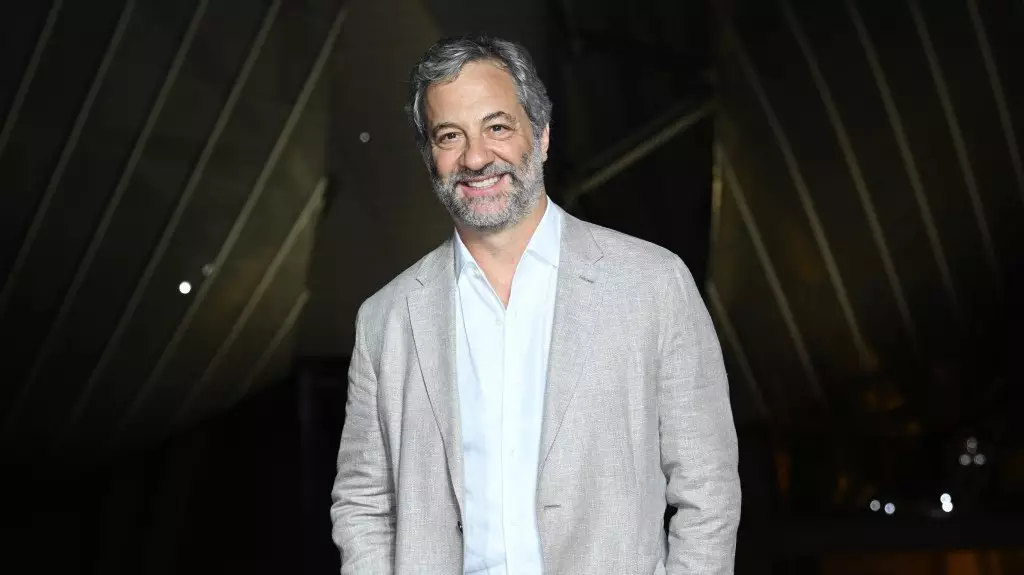Judd Apatow, a prominent figure in the entertainment industry, has taken a moment to introspectively critique the contemporary landscape of filmmaking. With a career spanning decades and an impressive repertoire of groundbreaking films, his perspective carries considerable weight. During a recent conversation on Dana Carvey and David Spade’s Superfly podcast, Apatow expressed concern over the prevailing trends that seemingly prioritize sensationalism over authenticity. He articulated a troubling shift within Hollywood, suggesting that modern storytelling is increasingly dominated by hyperbolic narratives filled with high stakes and emotional intensity.
One of Apatow’s key observations pivots on the idea that modern entertainment mirrors the sensationalist practices often found in news media. He pointed out that the current adage, “If it bleeds, it leads,” effectively sums up the direction of many contemporary films and streaming offerings. According to him, the obsession with delivering content that captures immediate attention leads to a proliferation of psychological thrillers and violent narratives. This fixation detracts from simpler, more grounded stories that characterize an authentically human experience.
Apatow’s commentary brings to light the diminishing presence of nuanced storytelling that demystifies the everyday life of average individuals. Instead, narratives tend to gravitate towards extremes, such as tales centered around global superstars or sinister killers, often designed to maintain viewer engagement through relentless intensity.
Joining the conversation, Dana Carvey added another dimension to this critique by highlighting the prevalence of hypersexuality within current media, citing Nicole Kidman’s recurring roles in prestige projects that often explore psychosexual themes. This shift suggests a broader trend where filmmakers lean heavily on sensationalized elements to attract viewership, which may be indicative of a deeper cultural shift in society’s consumption of entertainment. While such content can be engaging, it raises questions about the balance between entertainment and the portrayal of genuine human experiences.
Apatow further discussed the detrimental effects of modern viewing metrics on artistic expression. He referenced a poignant moment from the HBO series Barry, where the protagonist faces the harsh realities of cancellation due to algorithm-driven assessments of audience engagement. He argued that an overreliance on completion rates and viewer data narrows the diversity of content produced; creativity, he posited, suffers when creators are pressured to conform to these rigid standards. This shift toward catering to binary outcomes of success or failure undercuts innovative storytelling, which often thrives in environments where risk is celebrated.
The pressures Apatow described extend beyond traditional media into social platforms like TikTok, where creators are incentivized to optimize for engagement, often at the expense of depth and originality. The pursuit of viewership can lead to superficial content that prioritizes quick clicks and views instead of fostering genuine narrative exploration.
Amid these concerns, Apatow continues to contribute to the industry actively, organizing stand-up events and engaging in projects that highlight societal issues. His upcoming documentary on Mel Brooks signifies not just a nod to the past but an acknowledgment that there is value in the subtler, more contemplative forms of comedy and storytelling. Apatow’s critique serves as a call to action for filmmakers and audiences alike to seek and promote narratives that reflect the richness of human experiences, rather than succumbing to the allure of sensationalism.


Leave a Reply